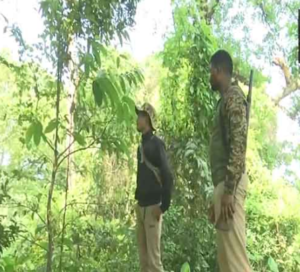Death row convicts taking advantage of inordinate delay in deciding mercy petitions: SC
New Delhi, Apr 14 (PTI) Death row convicts are taking advantage of an inordinate delay in deciding mercy petitions, the Supreme Court has said while directing the state governments and authorities concerned to see such pleas are decided and disposed of at the earliest.

A bench of Justices MR Shah and CT Ravikumar said even after the final conclusion by the top court, there is an inordinate delay in not deciding the mercy petition, the object and purpose of the death sentence would be frustrated.
“Therefore, as such, all efforts shall be made by the State Government and/or the concerned authorities to see that mercy petitions are decided and disposed of at the earliest, so that even the accused can also know his fate and even justice is also done to the victim,” the bench said.
The observations came on a petition filed by the Maharashtra government challenging an order of the Bombay High Court which commuted the death sentence awarded to a woman and her sister.
The high court commuted the death sentence to life imprisonment on grounds that there was an inordinate and unexplained delay on the part of the State/Governor of the State in not deciding the mercy petitions preferred by the accused which was kept pending for about seven years and 10 months.
A local court had awarded the death sentence to them in 2001 for kidnapping 13 children and killing nine in Kolhapur, which was confirmed by the high court in 2004. Even the Supreme Court upheld the high court order in 2006.
Later, their mercy petitions were rejected by the Governor in 2013 and subsequently by the president in 2014.
Refusing to interfere with the high court order, the top court said the gravity of the offence can be a relevant consideration while commuting the death sentence to life imprisonment. However, inordinate delay in disposal of the mercy petitions can also be said to be a relevant consideration while commuting the death sentence to life imprisonment.
“In view of the above, the impugned judgment and order passed by the high court commuting the death sentence to life imprisonment is not required to be interfered with,” it said.
Additional Solicitor General Aishwarya Bhati, appearing on behalf of the Union of India, submitted that looking at the seriousness and gravity of the offence committed by the accused, the high court ought to have passed an order to commute the death sentence to life imprisonment for natural life without any remission.
Noting her submissions, the apex court modified the sentence and directed that the accused undergo life imprisonment for natural life and without any remission.
“We observe and direct all the States/appropriate authorities before whom the mercy petitions are to be filed and/or who are required to decide the mercy petitions against the death sentence, such mercy petitions are decided at the earliest so that the benefit of delay in not deciding the mercy petitions is not accrued to the accused and the accused are not benefited by such an inordinate delay and the accused may not take the disadvantage of such inordinate delay,” the bench said.






